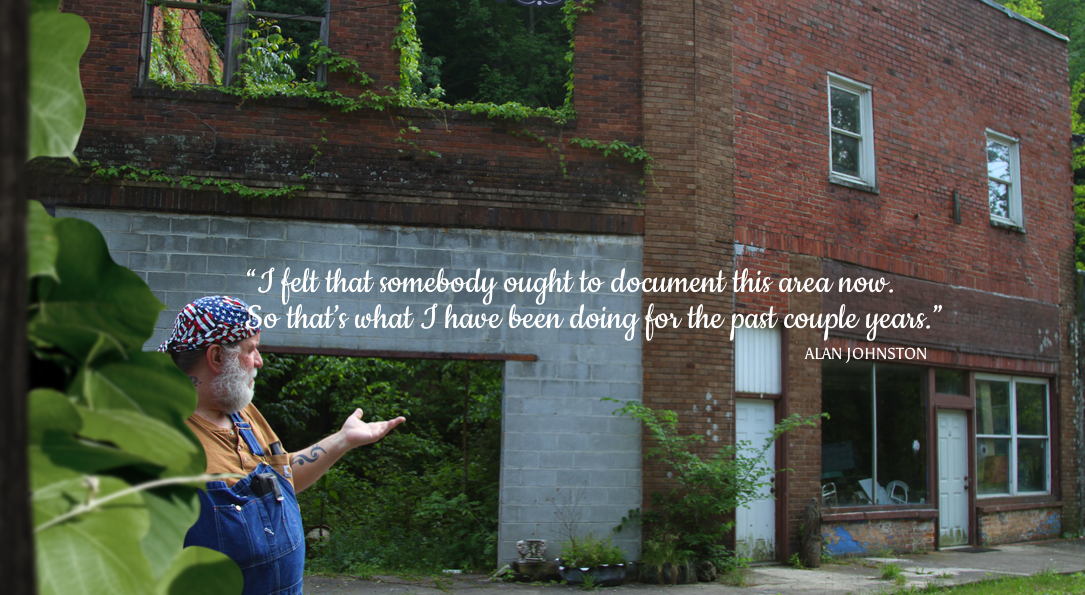I am troubled by GRAND narratives and BIG stories. I’ve written about my trouble with them on my blog in several different posts. Today, having recently read Douglas Rushkoff’s chapter, “Narrative Collapse” in Present Shock, I’m compelled to revisit my arguments and expand on them. It seems like a useful exercise since I’m in the process of trying to articulate my own vision/version of storytelling and my own tentative answers to the questions: Why do I tell stories? and How do I tell them?
Here’s an overview of some of my critiques:
The Existential Crisis
In a brief video interview, Ken Burns offers the following explanation for why we tell stories:
We tell stories to continue ourselves. We all think an exception is going to be made in our case, and we’re going to live forever. And being a human is actually arriving at the understanding that that’s not going to be. Story is there to just remind us that it’s just okay.
Sara Puotinen
And here’s my response in my post, Why do we tell stories?:
Burns offers a compelling vision of the storyteller, but it is about the Storyteller-as-Self with a capital S who skillfully crafts narratives (that lie and manipulate in hopefully productive, meaningful and complicated ways, says Burns in the video) that convince us that it’s okay to die. I want to imagine the storyteller as a different sort of self who crafts stories that provide comfort and meaning to more than themselves, but to and with their communities. And who shares stories that aren’t aimed at dealing with impending death, but with finding ways to help us make sense of and (hopefully) flourish in our lives.
Sara Puotinen
In revisiting my statement, I’d like to question my use of the word “comfort.” I like stories that provide meaning and that encourage people to be curious about those ideas and experiences that they take for granted or that they ignore. These types of stories aren’t necessarily comfortable or comforting, but they can be inspiring, thought-provoking and catalyzing.
The need for coherent, unifying narratives
In my post, on stories, sharing, and the trouble with coherent narratives, I discuss Jake Barton’s video on the importance of collaborative storytelling. He argues that collectively constructing a unifying narrative is important for providing us with meaning and binds us together. As an example, he describes the power of the moon landing to bring the world together in a collective celebration of how “we did it.”
I argue that this push for a unifying narrative can actually flatten out differences and erase the social and political contexts in which those differences actually matter:
Such a claim seems to erase all of the politics behind who the “we” was that actually did it (the U.S.) and for what purposes (at least partially, to beat Russia and claim U.S. superiority in space and everything else). I don’t know that much about the space race in the 60s, but I do know that it took place in the context of the Cold War, an extreme fear of Russia and communism and the vigilant practice of an Us versus Them mentality. Even if we accept, in a broader sense, that the fact that someone (anyone) was able to travel to the moon meant something to us-as-humans, what do we make of what happens not too long after Neil Armstrong took his historic step onto the moon, when he and Buzz Aldrin planted a U.S. Flag on the surface? What does the planting of the U.S. flag mean for a common, coherent narrative about Us?
My point in posing these questions is to trouble the idea that sharing and collaborating on stories brings us together by erasing our differences and reminding us that we are, ultimately, all the same. I like hearing stories that resonate with me and that enable me to see how my experiences can be similar to others. And some stories that I hear do prompt me to think, “wow, we aren’t all that different.” But, sharing and collaborating on stories does not require that we erase/ignore/suppress our differences or the political context in which those differences come to matter. The realization that differences matter does not mean that we can’t connect, share, collaborate or get along with others. It means that those connections shouldn’t demand that we create a singular narrative of commonality.
Sara Puotinen
My (leading) questions: Do we need one unifying narrative? Can we find ways to be bound together (or to connect) that involve taking seriously and embracing our different experiences and perspectives and by sharing multiple stories?
In my post, Beware of the Single Story, I bring an editorial in the New York Times by Steve Almond in conversation with Chimamanda Adichie’s video talk, The danger of a single story. First I argue:
I’m troubled by Almond’s refusal (or failure) to discuss the damaging effects that Grand Stories/Unified Narratives by a Narrator have had on all of us and our understandings of other perspectives and experiences. Yes, “narration represents the human capacity to tell stories in such a manner that they yield meaning.” However, this meaning is not singular and should not be revealed or articulated by any single Storyteller.
Sara Puotinen
And then I pose the question: Can we build off of Adichie’s brilliant storytelling about the dangers of a single story to imagine ways of creating meaning that aren’t predicated on just one story or one Narrator?

